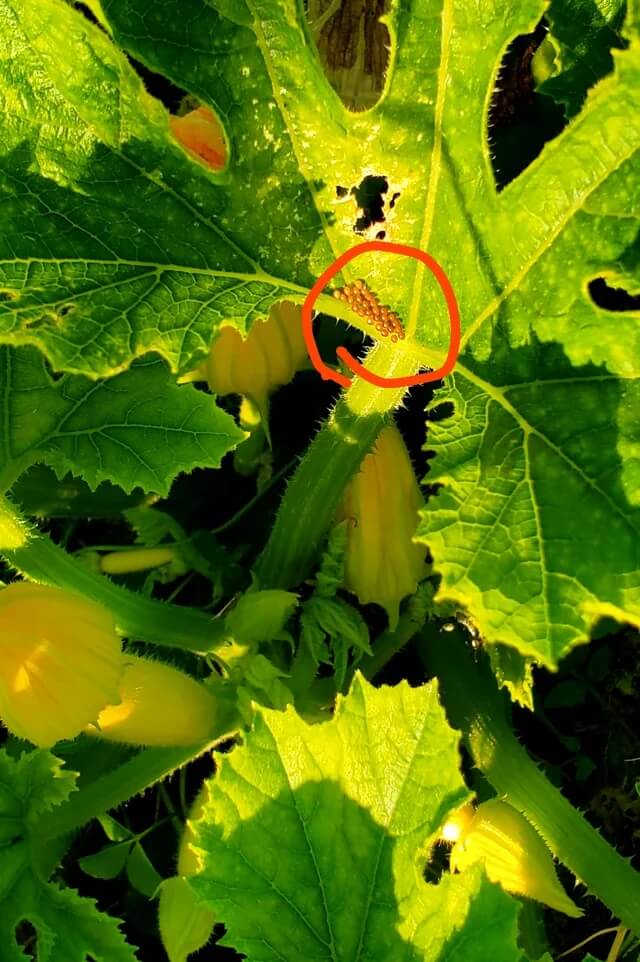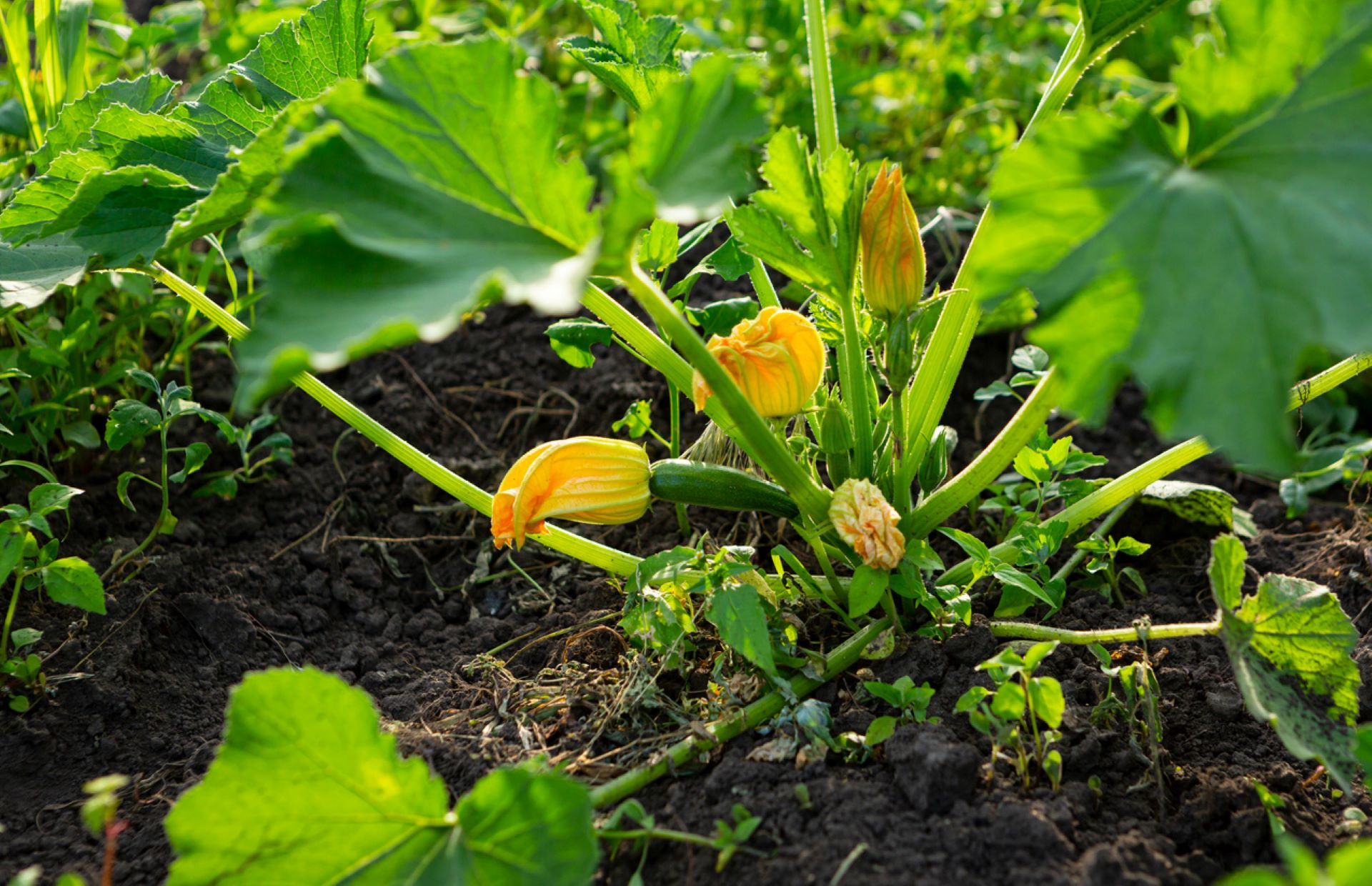One Redditor taking care of a neighbor's garden recently had their first run-in with a troubling garden pest.
The Redditor posted on r/Gardening for help with their problem. The subreddit is a welcoming place for gardeners of all skill levels where users answer all kinds of questions about growing plants.

"Anyone know what kind of (i assume) eggs these are on the leaf of the zucchini plant?" they asked. "Watching my neighbors garden and found them."
The photo included in the post showed a flowering but slightly chewed zucchini plant. A cluster of almost 30 insect eggs was attached to the top of one leaf. The seedlike eggs were translucent, yellow to orange, and round with one slightly narrower end, similar in shape to a chicken's egg.
A commenter broke the bad news to the original poster. "That looks like a squash bug egg cluster," they said. "If you do not remove them, they will hatch and cause a larger infestation."
Squash bugs are common pests of squash plants, including zucchini and pumpkins, according to the University of Minnesota. Unfortunately, they can kill young squash plants as well as damage growing squash. The adults look similar to a shield bug, with a flattened shape just over half an inch long. Eggs take 10 days to hatch, and the nymphs become adults in four to six weeks.
That was bad timing for the Redditor who found the eggs. "[The owners] will be out of town for the next 3 weeks," they said. "I'm not at all a plant expert so not really sure what I should do.."
Thankfully, the commenter who identified the eggs had low-cost, eco-friendly suggestions for saving the squash harvest without harsh chemicals. "Some people take duct tape and stick it to [the eggs]…they peel up pretty well, if you have good contact," they wrote.
For the eggs that had already hatched, the commenter suggested that "you can knock the hatchlings into a bucket of soapy water. They sink and drown."
Another option for dealing with squash bugs is scraping the eggs off the leaf with a knife, then leaving them on the ground for beetles and other beneficial insects to eat.
Join our free newsletter for easy tips to save more, waste less, and help yourself while helping the planet.









